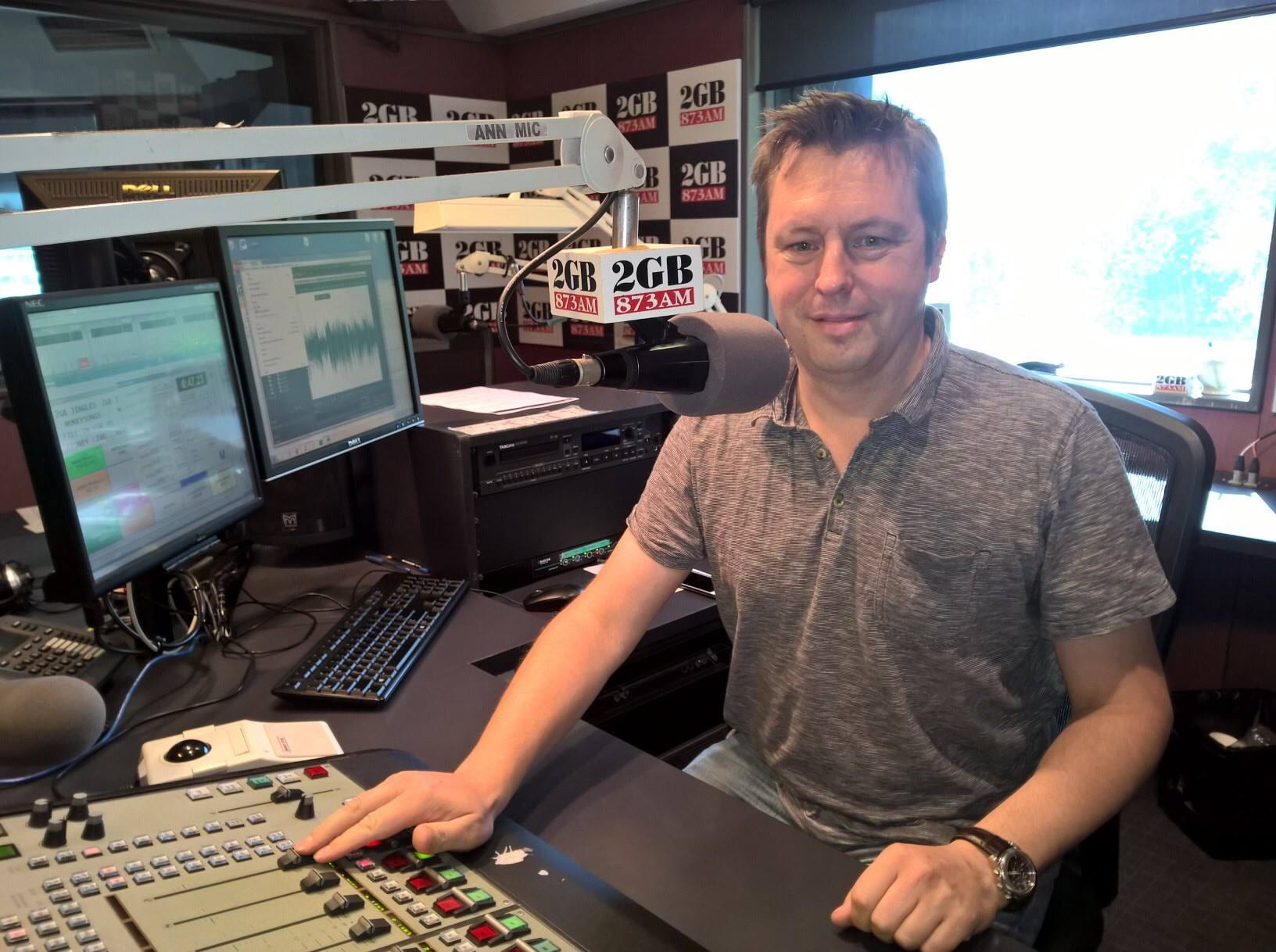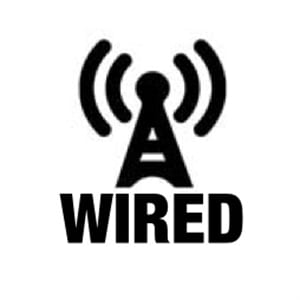It was 20 years ago today… that Wired Radio came out to play
Julian Lorkin completed his MA Radio at Goldsmiths in 1997 and was the first licence holder for Wired Radio, Goldsmiths’ digital radio station run by students. He worked at BBC Radio 4’s Today Programme and the Financial World Tonight for a decade before emigrating to Australia. He still writes for BBC online and broadcasts to Australia on Sydney’s 2GB radio.
Julian tells us more about the beginnings of Wired Radio as it reaches 20 years on the air this May.

Twenty years ago Goldsmiths was a lively hotbed of the arts scene in Cool Britannia’s 1990s, but alas student media didn’t really get a look at.
Arriving in 1996 for my MA in Radio straight from the University of Kent – where I’d spent three years running the student radio station there, UKCR – I’d spent much of the summer working at Jazz FM and hatching plans to give Goldsmiths its own radio station.
The Union was very receptive, and despite arriving just the day before, I already had a stall at the Fresher’s Fayre in the Great Hall, signing up over 200 people. The first of many meetings took place in the Marquis Of Granby, and we voted on a name – Goldsmiths College Radio. GCR was a deliberate parody of the BBC’s then GLR, or Greater London Radio.
The College agreed it was a great idea, but as it were, no one wanted to pay for it. I had a lucky break thanks to Jazz FM, who was about to change the branding on their talk service, Viva 963. It later became Liberty radio, but the owner, Mohammed Al Fayed, wanted something different, so I mixed three new packages of jingles with other names. The rejected name was Wired – I asked to keep the jingles, and by default, Goldsmiths radio became ‘Wired’, as we know it today.
The next lucky break came from LBC, who were moving out of studios at Hammersmith, and moving to Gray’s Inn Road. It now played jingles on the computer, instead of ¼ inch tape in a cartridge, as every station had since the 1960s. Every penny of my student loan went on getting hold a jingle cartridge player, at the then astounding price of £400 per cart machine. I asked for donations, and still have the response from LBC that it was “quite an extraordinary way” to run a radio station without any money. However, I also collected historical equipment LBC’s skips, from the Westminster patch bay – which carried the Big Ben ‘Bongs’ around the UK – to drums of cable.
Record decks came from a skip in Laurie Grove, and a huge ¼ inch reel to reel tape machine came from the BBC Home Service. Wired had studios and jingles, but nowhere to broadcast from, and no presenters either.
At the time, most student radio stations in the UK broadcast 30 weeks a year on fuzzy medium wave, but the previous year the Radio Authority opened up monthly crystal clear FM licences.
Thankfully most of the people who signed up in Freshers were keen to get on the air, with programming as diverse as R&B to political debates. I was faced with the daunting prospect of either putting them on air, on a crystal clear FM frequency to London – in the days when there was little competition on the airwaves – with little time to practice and only the rudiments of training on primitive equipment.
My campus room in Batavia Mews did sterling service as a temporary studio, rammed with antiquated equipment, generating a wall of heat that in the cold snowy winter of 1997 kept everyone nice and toasty. Prospective talent had a maximum of two hours to learn the ropes, and that included two attempts to get into the news at the top of the hour, which was simply taken off the air, from Jazz FM on a valve radio!
Only one problem remained – a studio space, and finally, the Students’ Union Sports said we could use their office, so long as we were only on the air in the four-week exam period. Great, we were going to launch Wired FM when everyone was at their busiest, in a room that sounded like a bathtub. Walls were soundproofed with egg cartons, but the College fire officer found out, and the whole lot had to come down.
The Radio Authority licence came through days before launch – making me personally responsible – but also with twice the power and transmitter height asked for. On the Friday night before Wired went on air, I inched out of the top of Warmington Tower (then a hall of residence), to rig up a mast fashioned from hot water pipes, and threw the audio feeder cable down to the Union. You could pick up the signal in Croydon, much to the annoyance of a pirate radio station there who phoned up the first day asking us (the legal station) to get off their frequency.
Thankfully the College never found out, or we’d have been off air in a flash. Ironically, it was the cleaners who took us off air at the weekend, as they wouldn’t open up the Union building for us.
And we were on air! It was an amazing success. The audience loved what we were doing, and Wired was not only the first FM student radio station in London but also the first to broadcast over what was then a brand new medium, the internet, thanks to the Computing Department getting hold of Winamp, one of the first ever internet streaming systems as a trial for the month.
I’m sure many who were part of that heady month remember our unexpected success with radio drama – a key part of getting the licence. I emailed Terry Pratchett to secure permission for a once a week drama based on his plays. Sound Art was another success, and ‘The Train to London Bridge’ was recognised with a silver award at the New York Radio Festival.
After the month’s trial, everyone was keen to carry on, but the licence was temporary, and with no students having either computers or internet, the only option to broadcast permanently was on AM induction loops. Over the next year, I spent months crawling through loft space in Batavia Mews installing miles of cabling, for Wired’s aerials, which are probably there to this day.
As a training ground, Wired was an amazing experience, and many of the people who were on air went on to careers in broadcasting, some of whom I later worked with at the BBC. The ability to broadcast from the most unpromising place using the most primitive of equipment is one I used for many years on the Financial World Tonight and stood me in good stead when I covered the Boscastle floods or Heathrow closedown for the BBC.
One experience remains unique to Goldsmiths however. I presented drive on Wired, and I found that with a long enough record playing there was just enough time to nip to the bar, get a pint, and present the rest of the show lubricated by South London’s finest.
